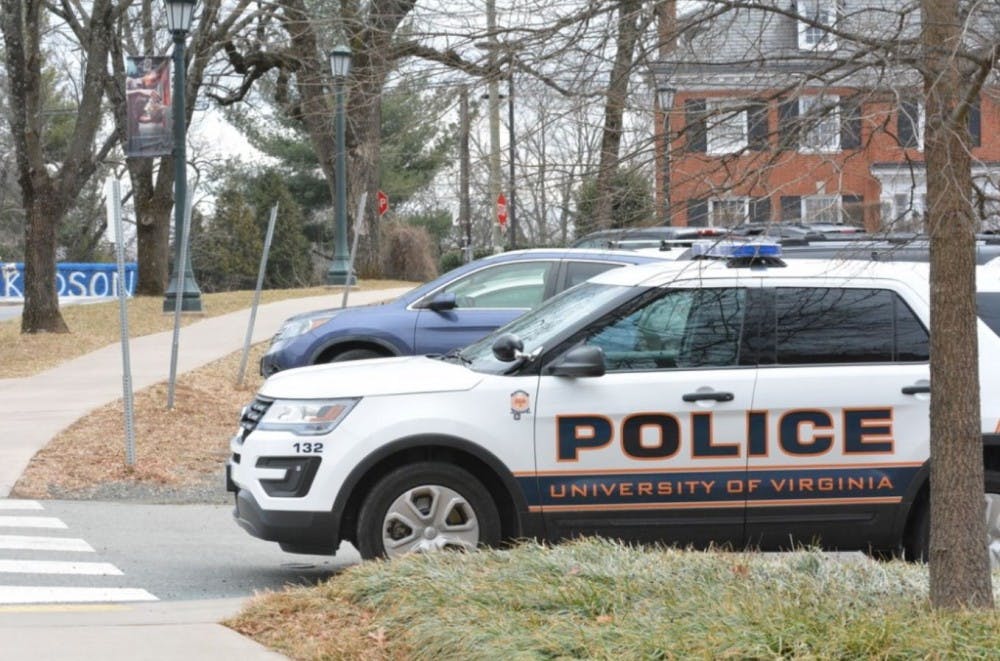The Police Advisory Board held its first meeting Nov. 28, where the body initiated discussion about how the installation of the program can facilitate engagement between students and the University Police Department. The meeting was attended by 13 undergraduate and two graduate students from the board, which consists of 19 students total. Their mission is to advise decisions concerning student safety by bridging communication between the student body and safety officials.
The board was created by Student Council under the leadership of Alex Cintron, a fourth-year College student and Student Council president, and Katie Kirk, a second-year College student and chair of the Student Council Safety and Wellness Committee. Kirk now serves as one of two co-chairs for the advisory board, along with third-year College student Priscilla Opoku-Yeboah.
The meeting was structured as a conversation among the student board members, along with officials from the UPD and Gloria Graham, the University’s associate vice president of Safety and Security. Graham shared her vision for the advisory board to serve as a comprehensive representation of students’ safety interests.
“I think there are some really good opportunities for this group,” Graham said. “I know that Katie [Kirk] and Alex [Cintron] tried to get a really good intersection of folks who are students here at U.Va. … really looking at who would be a good cross-section, so that we get a good sampling of issues that are brought to this group. We also have a good sample of folks that can carry messages back to the students that they are connected to through a whole host of different venues.”
The students on the advisory board were chosen from an applicant pool by Student Council’s 10-person Selections Committee. The committee was chaired by Kirk and included representatives from minority student groups such as the Minority Rights Coalition, the Black Student Alliance, the Latinx Student Alliance, the Queer Student Union and the Jewish Leadership Council.
In the discussion of goals and expectations for the board, there was a focus on relations between the University community and the UPD. UPD Chief of Police Tommye Sutton said he hoped the collaboration would give rise to more meaningful engagement.
“We’d like to be partners with you in all things, besides being between these four walls,” Sutton said to the student members. “To truly take you on as partners throughout the course of the academic year and build a relationship as we go — not only to keep you informed, but to make you an active partner in the transformation of how we engage the University community.”
Harry Kelso, a first-year College student and member of the board, brought up concerns with potential discrimination in the implementation and enforcement of University policies.
“The mis- or unequal implementation of certain policies, especially towards students and activists on campus … I think that is where the board should try to focus its attention,” Kelso said.
Kelso made specific reference to a recent incident involving the removal of a flag on the statue of Homer on the South Lawn. A flag hung by QSU in support of Transgender Awareness Week was taken down, but an American flag that was placed on the statue earlier in the year in remembrance of 9/11 was not removed by the UPD. Sutton made the clarification that the UPD enforces policy and responds to complaints equally, and that there was no malice or bias found in the decision to have the QSU flag removed.
Kirk said she hopes the group can communicate to both the police department and the greater University community by becoming informed on University policy and UPD decisions.
“I’m really excited to be able to communicate with more students and be able to discuss things like the Clery Act, and how the police department makes decisions, and how maybe we can improve upon those decisions they make — or give them advice from the student perspective of how to maybe look to a better way to have a better perception from the student body all around,” Kirk said in an interview.
During the meeting, Kirk proposed an informational discussion about the Clery Act for the next meeting’s agenda. The act is enforced by the U.S. Department of Education and requires the University to disclose data and information about crime and security on Grounds. The goal for the Police Advisory Board meeting will thus be to gain a more complete understanding of the act and communicate its relevance to fellow students.






